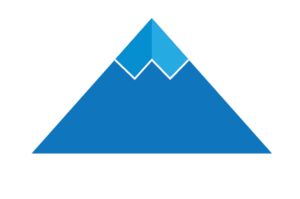In talking with colleagues and holding the space for clients and coaches, we are noticing a sense of heaviness and despair. The emerging coaching and supervision conversations are exacerbated by the layering of three main threats: the COVID 19 pandemic, global warming, and equity and social justice issues. Taken individually these threats may seem manageable but combined, they create a sense of overwhelming discomfort.
We also have other issues affecting us personally. For example, for Damian living in the US, the political landscape and the daily upsetting news on how the government is mismanaging these three issues impact his mood and he needs to make a big effort not to bring his anger to his work. For Lily, living in Canada and working with Aboriginal clients, she is challenged with the added opioid crisis that is killing more people than COVID 19 in British Columbia, and implications for at-risk populations and sometimes feels the despair of facing discrimination as a person of color. How do we as coaches and supervisors, maintain balance and resilience in this challenging context and how do we introduce these topics in coaching if clients are not bringing it to the discussion? Is it our responsibility to do so?
For example, in a supervision group facilitated by Lily, nobody mentioned any of these issues so she “noticed” that the Triple Threat was not in the space yet; nobody had brought it into the discussion, and how might these threats be impacting the conversations with clients. By introducing this question, the coaches in the supervision group were able to acknowledge how these issues impacted themselves as well as their clients and the conversation was able to go to a deeper and more systemic level. Do we, as coaches and supervisors, have a responsibility to bring these issues up? We strongly believe it is. Following the ICF coaching philosophy, we think we need to bring the systemic context to our conversations and ask the questions with no attachment. This is consistent with Professor Peter Hawkins and Eve Turner´s position in their book “Systemic Coaching”.
When the pandemic first started, many believed that the lockdown and closing of public spaces were just for a short time. More recently, as places started to open, people reacted with hope and optimism. And now, with places being closed again for the second time, clients often say that it is difficult for them to “see the light at the end of the tunnel”. On July 28, 2020, Google communicated to its employees that they are not expected to come back to the work in their offices until next summer, so this fatigue will continue and possibly grow. In one case, a colleague asked when things would get back to normal. There is no going back to normal as we knew it, so how are we getting ready for the new normal? What will be the new normal for our coaching, mentoring, and supervision practices? What do you think it will be different? What will remain the same?
In these challenging times, the Triple Threat has highlighted the importance of relationships and family. People are searching for new meanings in life and the existential curiosity is bringing new ways to look at the world. Our values are being examined and priorities are changing.
It has also highlighted some opportunities for us as coaches and supervisors. More than ever, how do we create sustainable practices that will bring us back to the center so that we can be fully present for our clients? Some of our practices include breathing exercises, meditation, walking in nature, and joining communities where we can openly discuss what feelings we are moving through without judgement.
What practices are you engaging in to ensure that you are engaging in self-care and self-compassion?
Lily Seto, MA, CEC, ESIA, Mentor Coach, and Accredited Coaching Supervisor, lives in Canada. Her global clients range from executives (CEOs and VPs) to middle and front line managers, in public, private, educational, financial, and the non-profit sectors. www.lilyseto.com
Dr. Damian Goldvarg, MCC, ESIA, has thirty years of experience providing executive coaching, leadership training, and facilitation in over fifty countries. He is an Accredited Coach Supervisor (ESIA) and facilitates worldwide certifications in Professional Coaching, Mentor Coaching, and Coaching Supervision. www.goldvargconsulting.com
